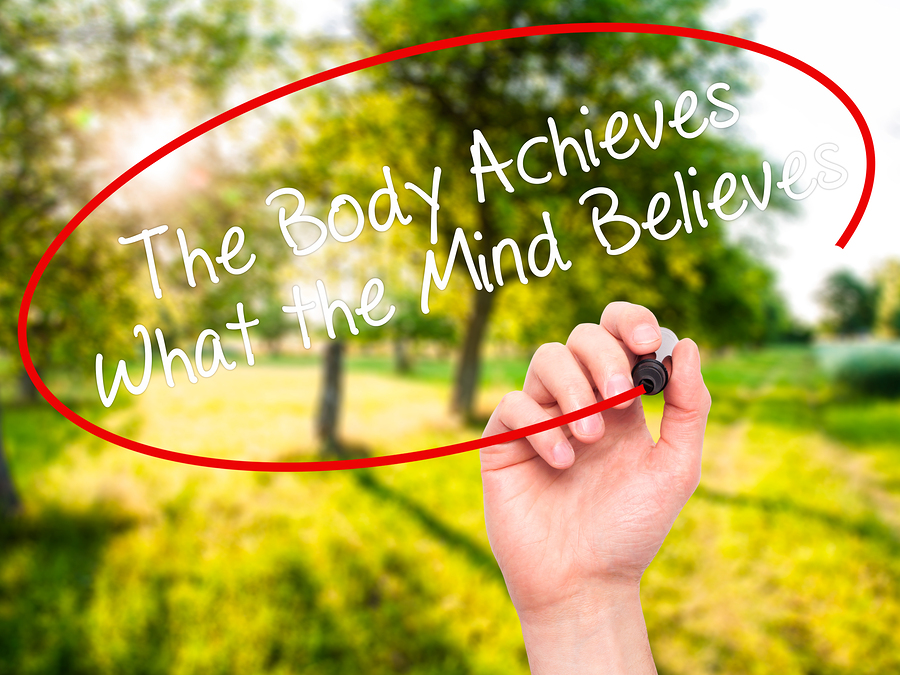 Mindset is a building block of wellness. No, not in some woo-woo way that you’re rolling your eyes at. In effective, researched, specific ways that are proven to make you healthier. And, think about it — without any real cost or danger. Why not try?
Mindset is a building block of wellness. No, not in some woo-woo way that you’re rolling your eyes at. In effective, researched, specific ways that are proven to make you healthier. And, think about it — without any real cost or danger. Why not try?
In its simplest look, think about someone you know who is nearly always complaining about their health. How are they, really? Oh, sure, maybe they have a good reason — a serious illness — to be complaining. But what is the complaining doing overall to them? Most likely making everything feel and actually be worse. How does that help?
Then think about someone who maybe does have good reason to complain, but they don’t. They devote themselves to finding the good in their life. They smile, laugh, have fun. They don’t go on and on about what’s wrong. They may update you with some facts and some info. And, yes, they may need to, at times, to a trusted loved one, vent that being ill sucks. Because it does. But they return to their generally positive outlook on life. (Remember — we’re never, ever – ever — aiming for perfection. Perfection sucks, too.) That person is most likely not only going to feel better in real life but do better in the long run.
Mindset even can reverse the effects of aging. REVERSE them. That’s incredible. We spend all this money and time on products and procedures to look and feel younger, and the one we can use most easily, effectively, safely and cheaply is right at our fingertips. Our brain tips. WHY NOT USE IT?
What’s the secret? In short, change your thoughts. Find what’s good. Label things with better names. Cut yourself some slack. Even, well, lie to yourself than things are different than they seem. Etc. In long, here you go:
In studies over four decades (FOUR decades, folks, this isn’t even new stuff), a psychology professor at Harvard found that mental attitude can both improve the effects of aging and physical health. (Let alone, I imagine, the mental health this benefits.) Ellen Langer calls it mind body unity. “Wherever you’re putting the mind, you’re putting the body,” she says.
In one of her earlier studies, she took men 70 years-plus to a retreat where everything was retrofitted to appear as if it were 20 years earlier. They lived as if they were in that time frame and that age. Spoke about it in the present tense. After a week’s time, they looked younger, their vision, hearing and strength improved, and some of their cognitive processes improved. Read that again … isn’t that amazing?
In another, they asked chambermaids (who are active all day long) how much exercise they get. None, they replied. They then split the groups into two. One group was told that their work was exactly the same as exercise. Making a bed is the same as working on this specific machine at a gym, etc. When they looked at that group three months later, that group had lost weight, had a better waist-to-hip ratio and BMI, and their blood pressure had come down. The only difference between the two groups was that one changed how they looked at what they did. That’s it. They didn’t do anything — not a thing — different. They just had a different mindset.
Most recently, they are looking at how mindset affects — and, most likely, improves — the health of those with serious illnesses like diabetes or cancer. In the study on Type 2 diabetics, it seems to show that their blood sugar levels responded to what time they perceived it to be and how much time had gone by, NOT what time it truly was. That’s a mind thing. Their minds thought something, “Oh, it’s been four hours. I must need to eat. Or need my medication.” Or whatever it was. When in reality, that wasn’t true at all. Their beliefs were controlling their blood sugar.
For the cancer study, they were planning on taking women with Stage 4 breast cancer and putting them in a retreat like the men mentioned above. Reverse time so they are back in the years before they were diagnosed. Then see what happens with their health.
These are small studies. I’m sure there are scientists and others out there who will dismiss them. Come back again to your evidence: What happens to you when you stay in that more present, more positive mindfulness? What happens when you don’t? What about others you observe? Then you can decide whether it’s worth it for you to stay on this track … or not.
For me, the choice is obvious. It cannot hurt. It can help a ton. Why not try?